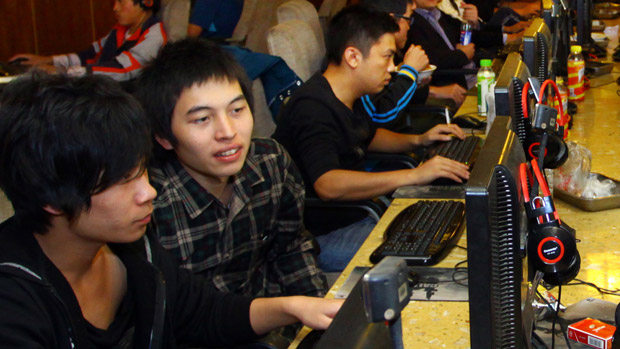Why China is trying to ban anonymity on social media
Cyberspace Administration plans to 'beef up' control of internet to stop rumour-mongering

A free daily email with the biggest news stories of the day – and the best features from TheWeek.com
You are now subscribed
Your newsletter sign-up was successful
China is trying to crack down on anonymous social media users in a bid to stop the spread of terrorism, pornography and "rumours" on the internet.
The government has in recent years tried to introduce real-name registration, requiring users to enter their names and national identification numbers when signing up to internet services.
But its Cyberspace Administration says it will now "comprehensively" implement the rule and "beef up" oversight to punish violators.
The Week
Escape your echo chamber. Get the facts behind the news, plus analysis from multiple perspectives.

Sign up for The Week's Free Newsletters
From our morning news briefing to a weekly Good News Newsletter, get the best of The Week delivered directly to your inbox.
From our morning news briefing to a weekly Good News Newsletter, get the best of The Week delivered directly to your inbox.
It wants to increase regulation to cover more services, including instant messaging, Twitter-like microblogs, online forums and other websites.
The South China Morning Post describes it as a way to "cleanse content", while the government's flagship English-language newspaper China Daily says it aims to "prevent the spreading of rumours and information relating to terrorism, pornography and violence on the internet".
"Netizens" will play a role in regulating cyberspace, with government recruiting volunteers to help supervise illegal information online in return for rewards, says China Daily. An additional 100 websites will also be told to set up reporting hotlines for their users.
Last year, China's Internet Illegal Information Reporting Centre paid out 8.5 million yuan ($1.3 million) in rewards after receiving almost one million reports, four in five of which related to online pornography.
A free daily email with the biggest news stories of the day – and the best features from TheWeek.com
In the last two months, the Cyberspace Administration also exposed and closed down 24 websites, nine online columns and 17 public WeChat accounts for publishing "false information".
China's crackdown comes as David Cameron promised to increase authorities' power to access online communications in the UK. There should be no "means of communication" that "we cannot read", he declared following the terrorist attacks in Paris.
Technology pundits pointed out that this would essentially mean an end to anything that uses encryption: from Apple iMessage and WhatsApp to online shopping and banking.
"Cameron either knows his anti-terror talk is unworkable and is looking for headlines, or he hasn't got a clue," said James Ball at The Guardian.